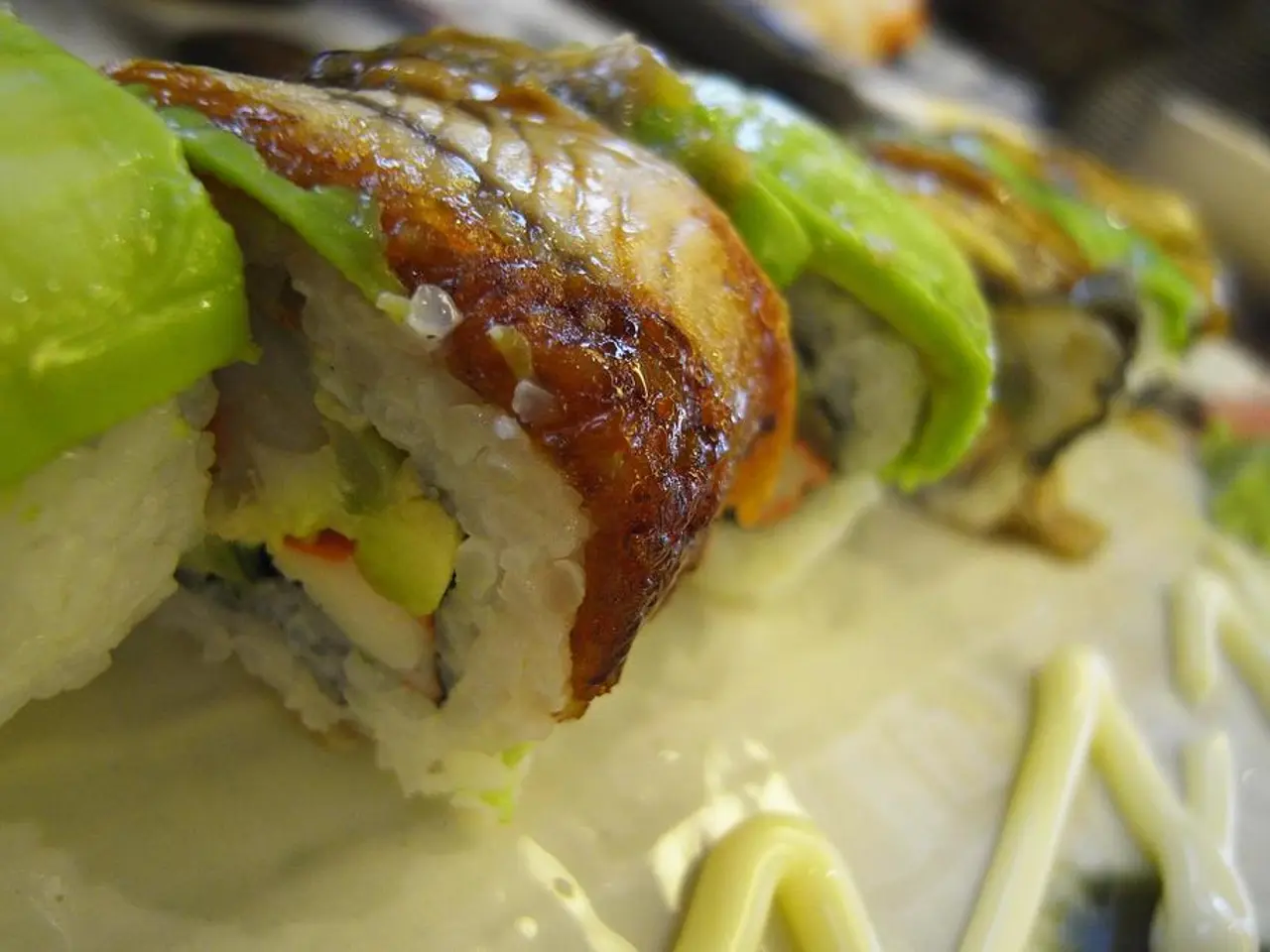Strategies for Supplying Birds in Your Backyard with Delicious Treats
In the heart of nature, our gardens can serve as a haven for a diverse array of wild birds. To ensure a thriving avian community, it's essential to provide the right food and maintain clean and pest-free feeding stations.
The best foods to attract wild birds are black oil sunflower seeds, sunflower hearts, peanuts, dried mealworms, suet pellets or cakes, and seasonal fruits like bruised apples and pears. These options provide high nutritional value and cater to various bird species' dietary needs throughout the year.
To avoid attracting pests such as squirrels, pigeons, or unwanted wildlife while feeding birds, follow these tips:
- Use squirrel- and pigeon-proof feeders that allow smaller birds access but prevent larger pests from reaching the food.
- Avoid cheap seed mixes with fillers (like cracked corn and red milo), as leftover uneaten seeds can mold and attract pests.
- Place food in wide open areas for ground-feeding birds, away from hedges and sheltered spots where predators like cats can hide.
- Keep the feeding area clean by regularly removing food hulls and uneaten seeds to reduce pest attraction.
- Choose appropriate feeding methods based on bird size and feeding habits, such as hanging feeders for small birds and ground feeding for larger species like blackbirds and thrushes.
Quality bird seed mixes, such as Kaytee Wild Bird Food Basic Seed Blend, are highly nutritious and attract various bird species to a garden. Mealworms, a high-protein food, can be given to insectivorous birds all year. The best seed mixes contain sunflower seeds, maize, rolled oats, pinhead oatmeal, millet, kibbled peanuts, and niger seed.
Fruits from the garden, such as berries, apples, and pears, attract a variety of birds and provide shelter, but can be harmful to cats and dogs. Raisins are a good energy source for birds, especially robins and thrushes, but they are toxic to dogs and cats. Soaking raisins overnight makes them soft and adds additional moisture, which is important during the breeding season.
Mealworms are enjoyed by robins, blue tits, blackbird, dunnock, great tit, house sparrow, song thrush, starling, and wren. It's advisable to soak mealworms first to prevent baby birds from choking. Dead mealworms can cause salmonellosis, so it's advisable to buy high quality, dried mealworms.
Leftover food from the kitchen, such as beef suet, potatoes, pastry scraps, and grated cheese, can be used to feed garden birds for their high fat content. However, ensure the peanuts given to birds are labelled, 'nil detextable aflatoxin rated,' as aflatoxins found in peanuts can be harmful to birds if ingested.
Suet pellets, suet blocks, and fat balls are ideal for hanging feeders and provide a vital source of energy for birds, particularly in the winter months. Fresh water should be left out daily for birds to keep hydrated.
By offering high-quality, appropriate food and managing feeders wisely, you can help wild birds thrive in your garden while minimizing pest issues.
- To ensure a healthy lifestyle for pets at home, it's crucial to choose high-quality dog food that caters to specific breed requirements.
- Cats, as carnivores, require a diet rich in meat and protein, with options like canned cat food or dry kibble available.
- Similar to wild birds, the ideal food for pets should provide high nutritional value to support their overall health and wellbeing.
- Just as we maintain clean and pest-free feeding stations for wild birds, keeping pet feeding stations clean and free from contamination is essential for preventive healthcare.
- Providing a balanced and nutritious diet, along with regular veterinary care, contributes to a happy and healthy pet lifestyle within our home-and-garden surroundings.




